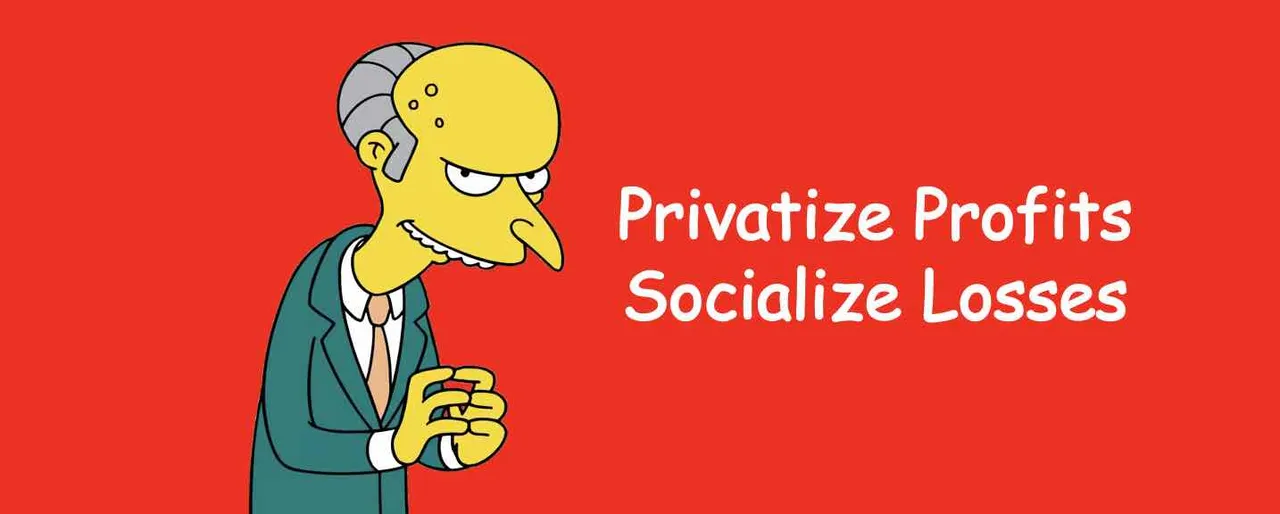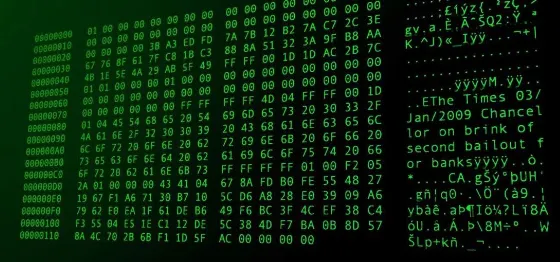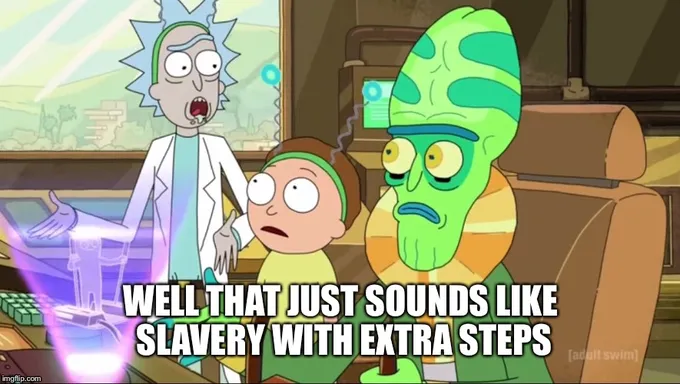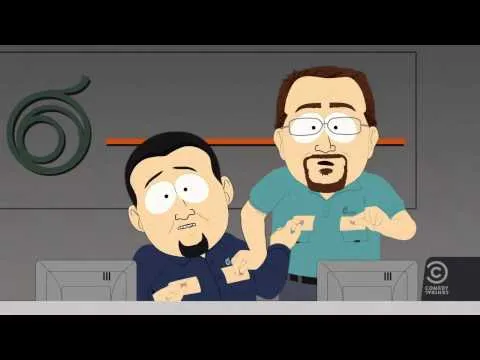
Origin:
The phrase "privatize gains, socialize losses" is often used in the context of criticizing government intervention in the economy, particularly when it benefits private entities at the expense of the public.
The game is rigged, ladies and gentlemen!
Some industries have been deemed "too big to fail", and thus when they inevitably do fail the government just loans them money and bails out their failed business; creating a legion of zombie companies that don't deserve to live but get to anyway by indirectly leeching from the taxpayer lifeforce.
So which industries are too big to fail?
So so many.
Banks
Certainly the biggest industry that isn't allowed to fail is the retail banking sector, and by extension the real estate market (via home loan). We learned this the fun way during the 2008 housing crisis. So many illegal dealings happened during that time and legit nobody went to prison for it. They just restructured everything, printed a bunch of money, and called it good. Coincidentally Bitcoin launched immediately after this happened. What amazing timing!
"Chancellor on the brink..."

Power companies
Everybody needs light, but electricity is a shockingly (kek) unforgiving business. Powerplants cost a TON of money and infrastructure and upkeep to deliver power is wildly expensive as well. And as we all know this resource isn't particularly expensive to buy (at least it used to be cheap). This makes the industry extremely risky because it might take 5 years or more just to start turning a profit, and that's if you get lucky.
The big problem with subsidizing losses is that taxpayer money ends up getting funneled to shareholders. It is the shareholders of these companies that get to capitalize on profits... and then when the business fails the shareholders go crying to daddy government to make sure they didn't make a bad trade. The top shareholders of these companies are very powerful and influential people capable of swaying the politicians (think Blackrock). Not a great combination for the common man living paycheck to paycheck without any assets to speak of. Some might call it slave labor with extra steps.

Tech companies: go fuck yourselves!
One of the big reasons why tech companies are considered such a "risk-on" asset is that gains get quite large, but when things like the Dot Com bubble happen they don't get a bailout like the banks because they don't have that "too big to fail status". Sorry tech bros, better luck next time.
Internet
More recently, during the COVID-19 pandemic, the U.S. government enacted the CARES Act in March 2020, which provided over $2 trillion in economic relief. While not targeting internet companies specifically, this package included the Paycheck Protection Program (PPP), which offered forgivable loans to businesses to maintain payrolls.
Telecommunications and Internet is also one of those industries that gets subsidized from time to time. When money printer go brrrr everyone tries to grab the biggest piece. Those who don't get it: pay it; usually in the form of rising costs that can sometimes take years to surface within our complex economy.
Airlines
Propelling humans through the air at 500 miles per hour has also been deemed a necessary function a couple of different times. The most prominent examples being 9/11 and COVID. Let no crisis go to waste! Whenever something truly messed up happens someone always finds an excuse to turn on that printer.
Food
Have you ever just wanted to buy a farm and start generating value literally out of thin air using the power of the sun? Well... too bad! You can't! Because all the farmers in this country get subsidies to produce their product in enormous mass quantities at a discount. Normal people are not allowed to compete within this industry.
The amount of corn we are currently farming and have been farming for decades is wildly out of control. Corn syrup is quite bad for you... in fact my dad was a chemist for a sugar company and I remember playing around with buckets of the stuff... just a thick translucent sticky goo. "Don't eat that kid, it's terrible for you." Now it's in all our processed foods. Very cool.
Monopolies
A lot of these bailouts, subsidies, and exorbitant overhead costs lead to legalized monopolies in which we have no choice over which service provider we get. No choice means the service provider becomes lazy and no longer has to compete; perpetually dicking around their customers without ever having to worry about losing business. Not great!
Environmental disasters
Somewhat related to this is when there's some catastrophic oil spill and the CEOs responsible for this easily preventable happenstance are just like, "Oops sorry we got greedy I guess we should have spent more resources on safety and best practice". Very rarely do these people ever have to answer for their crimes. Once you make it to a certain level you're untouchable unless you do something REALLY bad that actually pisses other rich people off.
Taxes
Whenever a citizen wants to take some risks to earn a reward, the IRS always butts in and demands their cut. However, does the government ever share in this burden of the risk? Of course not. If you get burned on an investment... they don't care, but if you succeed they demand protection money. This is the opposite of what we've been discussing: when it comes to the citizen (the entity that government is supposed to work for) they instead opt to subsidize the gains and privatize the losses. These hypocrites just can't pick a lane. Have your cake and eat it too.
corporate personhood
The tax aspect of this situation also shows us how corporations legally have more rights than people. When a corporation takes operating cost losses they can do things like deduct them from later years. Meanwhile individuals either can't do this, don't know how to do this, or don't have the same range of motion when it comes to doing it. The devil is in the details. Look it up for more info. There's a laundry list of reasons that detail how corporations have more rights than people and can act as people within the economy. The verbal definition of an LLC (limited liability corporation) is to limit liability, aka subsidize the losses and push them away from the owners of the company.
Inflation
A further extension of the tax situation, the loss of purchasing power of our unit-of-account (dollars/fiat) is also taxed as a gain. If USD loses 10% of its value: it looks like everything has gone up 10%. That 10% "gain" is then taxed as if everyone earned something when in reality all these subsidizes and bad debt were stealing wealth. So it's a hidden double-tax. Tax once during the money printer phase and again during capital gains. How devious!
Conclusion
Is crypto the silver bullet solution to this problem of government subsidy? I'd like to think so, but it's also more than that. Crypto only solves things that we can come to consensus to solve... and it requires the infrastructure to back it up. For an issue as big as this we have neither of these things in place nor the raw power it would take fix it. Maybe one day though!
The people in power tend to bend the rules to keep themselves in power and make sure they're not the ones that lose the game. Then they justify these actions and pretend as though it is a selfless act in a most aggressive form of gaslighting. Opt out. Buy Bitcoin. Don't let them subsidize the losses by devaluing your money. However, this is only the first step of many on the road to self-sovereignty.


